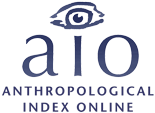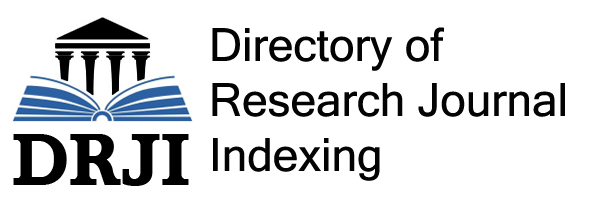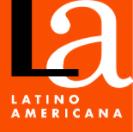El dispositivo etnográfico como herramienta metacognitiva en el campo de los estudios sobre la cuestión climática y la sustentabilidad global
Palavras-chave:
etnografía, implicación-reflexividad, metacognitiva, co-producción de conocimientoResumo
Este trabajo se propone reflexionar sobre la dimensión meta-cognitiva del dispositivo etnográfico implicación-reflexividad (Althabe y Hernández, 2004) y su rol en la producción de conocimiento crítico sobre los procesos de coproducción de conocimiento en el campo de los estudios sobre sustentabilidad global. Para ello, nos basaremos en los registros y documentos generados durante el período 2015-2017, en el marco de nuestra experiencia como investigadoras en una red internacional interdisciplinaria orientada hacia la co-producción de conocimiento de servicios climáticos socialmente relevantes para el sector de la agricultura familiar argentina. Tomando como premisas que la comprensión requiere una disposición hermenéutica para cuestionar las propias certezas (Gadamer, 1975), que los diversos sistemas de conocimientos expresan versiones del mundo en las que es preciso reconocer una voluntad de verdad (Foucault, 1969) y que existe una autonomía relativa de los campos sociales respecto de las lógicas macro-sociales (Bourdieu, 2013), consideramos el dispositivo etnográfico implicación-reflexividad especialmente fecundo para producir conocimiento en y sobre los contextos de trabajo interdisciplinarios e intersectoriales, pues permite poner en juego las múltiples alteridades presentes (cognitiva, social, institucional, etc.) de manera reflexiva. A su vez, su capacidad meta-cognitiva permite interrogar los límites de la noción de coproducción y sus desafíos.
Abstract Ethnography as a meta cognitive tool in the field of studies on climate issues and global sustainability
This article reflects on the meta-cognitive dimension of the ethnographic approach of implication-reflexivity (Althabe and Hernández, 2004) and its critical role in the co-production of knowledge in the field of studies on global sustainability. In order to do so, we rely on the records and documents generated between 2015-2017, as researchers in an interdisciplinary international network oriented towards the co-production of socially relevant climate services for the Argentine farming family sector. Taking as premises that comprehenssion requires a hermeneutic disposition to question one' s own certainties (Gadamer, 1975), that the diverse systems of knowledge express versions of the world in which it is necessary to recognize a will of truth (Foucault, 1969) and that there is a relative autonomy of the social fields regarding the macro-social logics (Bourdieu, 2013), we consider the ethnographic approach of implication-reflexivity particularly fruitful to produce knowledge in and about interdisciplinary and intersectoral work contexts because it allows the multiple present alterities (cognitive, social, institutional, etc.) to be engaged in a reflexive way. At the same time, its meta-cognitive capacity makes it possible to question the limits of the notion of co-production and its challenges.
Keywords: Ethnography, Metacognitive, Implication-Reflexivity, Knowledge Co-production
Referências
Althabe, Gerard (1990). “L'ethnologue et sa discipline”, L'Homme et la Société, N.º 95, pp. 25-41.
Althabe, Gerard (1992). “Vers une ethnologie du présent”, en Collection Ethnologie de la France. París, MSH. Cuaderno Nº 7, pp. 247-257.
Althabe, Gerard y Hernández, Valeria (2004). “Implicación y reflexividad”, en Autor et al. (comps.), Etnografías Globalizadas. Buenos Aires, Ediciones SAA. pp. 71- 90
Agier, Michele (1999). L’Invention de la ville. Banlieues, townships, invasions et favelas. Paris, Éditions des archives contemporaines.
Bäckstrand, Karin (2010). “From Rhetoric to Practice: The Legitimacy of Global Public-Private Part-nerships for Sustainable Development”, en: Bexell M., Mörth U. (eds.) Democracy and Public-Private Partnerships in Global Governance. Londres, Palgrave Macmillan. pp. 145-166.
Bialakowsky, Alberto (2013). Coproducción e intelecto colectivo: investigando para el cambio con la fábrica, el barrio y la universidad. CABA, Teseo.
Bourdieu, Pierre (2013). “Séminaires sur le concept de champ, 1972-1975. Introduction de Patrick Champagne ”. Actes de la recherche en sciences sociales, vol. 200, no. 5, pp. 4-37.
Callon, Michel (1986). “The Sociology of an Actor-Network: The Case of the Electric Vehicle.”, en Callon et al. (eds.) Mapping the Dynamics of Science and Technology. Londres, McMillan. pp.19-34.
Cash, David; Clark, William; Alcock, Frank; Dickson, Nancy; Eckley, Noelle; Guston, David; Jäger, Jill; Mitchell, Ronald (2003). “Knowledge systems for sustainable development”. En: Proceedings of the National Academy of Sciences of the United States of America. Vol. 100, No. 14. pp. 8086-8091.
Clark William, van Kerkhoff Lorrae, Lebel Louis & Gallopin Gilberto (2016). “Crafting usable knowledge for sustainable development”. En: Proceedings of the National Academy of Sciences. Vol. 113, Nº17, pp. 4570-4578
De Sousa Santos, Boaventura (2005). La universidad en el siglo XXI. Para una reforma democrática y emancipadora de la universidad. Buenos Aires: Laboratorio de Políticas Públicas.
Driessen, Peter; Leroy, Pieter y Van Vierssen, Wim, (2010). From Climate Change to Social Change – Perspectives on Science–Policy Interactions. Utrecht, International Books.
Escobar, Arturo (2010). Una minga para el postdesarrollo: lugar, medio ambiente y movimientos sociales en las transformaciones globales. Lima, Universidad Nacional Mayor de San Marcos.
Fals Borda, Orlando (1987). Ciencia propia y colonialismo intelectual. Los nuevos rumbos. Bogotá, Carlos Valencia Editores.
Fazey, Ioan, Hardt, Lukas, Msika, Joshua, Pinke, Maria, Preedy, Katharine, C. Evely, Anna, Lambert, Emily, Hastings, Emily, Morris, Sue & Reed, Mark (2014). “Evaluating knowledge exchange in interdisciplinary and multi-stakeholder research”. Global Environmental Change. Nº 25, pp.204–220.
Fiske, Shirley, Crate, Crumley, Carole, Galvin, Kathleen, Lazrus, Lucero, Lisa, Oliver-Smith, L, Orlo-ve & Strauss Wilk (2015). “Changing the Atmosphere. Anthropology and Climate Change”. En: Final report of the AAA Global Climate Change Task Force. Arlington, Virginia, American Anthropologi-cal Association. pp. 1-137.
Fossa Riglos, Florencia y Hernández, Valeria (2015). “¿Postnormal research networks?: Rethinking the production of interdisciplinary and transectorial knowledge”, Our Common Future under Cli-mate Change (CFCC) Conference, Paris 7-10 juillet.
Freire, Paulo (1970). Pedagogía del Oprimido. Buenos Aires, Siglo XXI.Foucault, Michel (1969). L’archéologie du savoir. Paris, Gallimard.
Funtowicz, Silvio y Ravetz, Jerome (1993). “Science for the Post-Normal Age”. Futures, Nº 25, pp. 735-755.
Gadamer, Hands-Georg (1975). Truth and Method. Londres, Segunda edición por Sheed and Ward, Continuum Publishing Group, Reimpresión 2006.
Giddens, Anthony (2009). The Politics of Climate Change. Londres, Polity Press.
Gibbons Michael, Limoges Camille, Nowotny Helga, Schwartzmann Simon, Scott Peter, y Martin Trow (1994). The New Production of Knowledge: The Dynamics of Science and Research in Contemporary Societies. Londres, Sage Publications.
Godal, Odd (2003). “The IPCC's assessment of multidisciplinary issues: the case of greenhouse gas indices”, Climatic Change, Vol 58, N.º 3, pp. 243-249.
Hernández, Valeria (2001). Laboratoire:mode d'emploi. Science, hiérarchies et pouvoirs. Collection Anthropologie Critique. Paris, L’Harmattan.
Hernández, Valeria (2005). “Agenda para una antropología del conocimiento en el mundo contemporáneo”. En: Hernández et al. (comps), Etnografias Globalizadas. Buenos Aires, Ediciones Sociedad Argentina de Antropología.
Hernández, Valeria, Moron, Vincent, Fossa Riglos, Maria Florencia, Muzzi, Eugenia (2015). “Confronting farmer's perceptions of climatic vulnerability with observed relationship between yields and climate variability in Central Argentina”. Weather Climate and Society, Vol 7, Nº1, pp. 39-59.
Hernández, Valeria, (2017). Postura antropológica en tiempos de tecnociencia y espectáculo”. Seminario Malestar en la etnografía, malestar en la antropología, organizado por Epele M. & Guber R. [luego publicada en la compilación registrada en el Sistema ISBN Argentino con el número: ISBN: 978-987-23365-7-8.]
Hernández Valeria, Serpe Paula et Spinoso Nahuel (2018). “ Expansion du modèle agrobusiness dans la filière rizicole en Argentine : enjeux productifs, environnementaux et sociaux”, Les Cahiers d’Outre-Mer (275), 163-187.
Hernández, Valeria (2019, en edición). “Diálogo entre saberes heterogéneos: coproduciendo pro-nósticos climáticos con relevancia social.” En: Padawer A. (comp) 2019. Actores y procesos de conocimiento en el mundo rural: la producción de alimentos, las agroindustrias y los biomateriales.
Hegger, Dries; Lamers, Machiel; Zeijl-Rozema, Annemarie & Dieperink, Carel (2012). “Conceptualising Joint Knowledge Production in Regional Climate Change Adaptation Projects: Success Condi-tions and Levers for Action”. Environmental Science & Policy, Nº 18, pp. 52-65.
Hel, Sandra van der (2016). “New Science for Global Sustainability? The Institutionalisation of Knowledge Co-Production in Future Earth”. Environmental Science & Policy, Nº 61, pp. 165-75.
Hidalgo, Cecilia (2018). “El giro colaborativo en las ciencias del clima: obstáculos para la provisión de servicios climáticos en Sudamérica y cómo superarlos”. En: C. Hidalgo, B. Vienni y C. Simon (eds.), Encrucijadas Interdisciplinarias. Buenos Aires, Ciccus – Clacso. pp.17-30.
Hiramatsu Ai, Mimura Nobuo y Sumi Akimassa (2008). “A mapping of global warming research based on IPCC AR4”, Sustainability Science, Vol. 3, Nº2, pp. 201-213.
Hov Øystein et all (2017). “Five priorities for weather and climate research”, Nature, Nº 168, Vol 552, pp. 168-170.
Hulme, Mike (2010). “Problems with making and governing global kinds of knowledge”, Global Environmental Change, Nº 20, pp. 558-564.
Hulme, Mike y Mahony, Martin (2010). “Climate change: What do we know about the ipcc?”, Progress in Physical Geography, Vol 34, Nº 5, pp. 705-718.
Jasanoff, Sheila (2010). “A New Climate for Society”, Theory Culture Society, Vol. 27, Nº2-3, pp. 233-253.
Jasanoff, Sheila y Wynne, Brian (1998). “Science and decision making. Human choice and climate change”. In: Rayner, S., Malone, E.L. (Eds.), Human Choice and Climate Change. Washington, Battelle Press. pp. 1-87.
Lampis, Andrea (2016). “Cambio ambiental global, estado y valor público: la cuestión socioecológica en América Latina entre justicia ambiental y legítima depredación”. CLACSO, Pontificia Universi-dad Católica de Perú, pp.11-27
Latour, Bruno (2012). Cogitamus: Seis Cartas Sobre Las Humanidades Científicas. España, Paidós.
Latour, Bruno (1983). “Give me a Laboratory and I will Raise a World”. En: Science Observed. K. Knorr-Cetina and M. Mulkay (editors). London, Sage, pp. 141-170.
Leemans, Rick (2016). “The lessons learned from shifting from global-change research programmes to transdisciplinary sustainability science”. Current Opinion in Environmental Sustainability, Nº19, pp. 103-110.
Leff, Enrique (2010). “Globalización, Racionalidad Ambiental y Desarrollo Sustentable”, en Saber Ambiental, México, Siglo XXI Editores, 6a edición.
Leiserowitz, Anthony et al. (2012). “Climategate, Public Opinion, and the Loss of Trust”, American Behavioral Scientist, Nº 57, pp. 818-837.
Lele, Sharachchandra et al. (2018). “Framing the environment”, en Sharachchandra Lele et al. (Ed.) Rethinking Environmentalism: Linking Justice, Sustainability, and Diversity, MA, MIT Press. pp. 1-19.
Lemos, Maria Carmen, y Morehouse Barbara J., (2004). “The Co-Production of Science and Policy in Integrated Climate Assessments”. Global Environmental Change, Vol 15, Nº 1, pp. 57-68.
Lemos Maria Carmen, Kirchhoff CJ and Ramprasad V (2012). “Narrowing the Climate Information Usability Gap”, Nature Climate Change, Nº 2, pp. 789–794.
Malone, Elizabeth y Rayner, Stephen (2001). “Role of the research standpoint in integrating glo-bal-scale and localscale research”, Climate Research, Nº19, pp. 173-178.
Martínez Alier, Joan (2008). “Conflictos ecológicos y justicia ambiental”, Papeles, Nº103, pp. 11-27.
Mauser Wolfram, Klepper G, Rice M., Schmalzbauer B., Hackmann H., Leemans R. and Moore H. (2013). “Transdisciplinary global change research: the co-creation of knowledge for sustainability”, Current Opinion in Environmental Sustainability, Volume 5, Issues 3–4, pp. 420-431.
Meadow, Alison M., Daniel B. Ferguson, Zack Guido, Alexandra Horangic, Gigi Owen, y Tamara Wall (2015). “Moving toward the Deliberate Coproduction of Climate Science Knowledge”, Weather, Climate, and Society, Vol. 7, Nº 2, pp. 179-91.
Moser, Susanne C. (2016). “Can Science on Transformation Transform Science? Lessons from Co-Design”. Current Opinion in Environmental Sustainability, Nº20, pp. 106-15.
Nowotny Helga, Scott Peter y Gibbons Michael, (2003). Repenser la science. Paris, coll. Débats- Belin. http://journals.openedition.org/histoire-cnrs/427
ODS-ONU (2015). 2030 Agenda for Sustainable Development, https://www.un.org/sustainablede-velopment/es/development-agenda/
Ortíz de Zárate María Inés, Rolla Alfredo, Robledo Federico et al. (2018). “Aplicación diálogo Bermejo: Plataforma coproducida de información climática”, Congreso Argentino de Meteorología, Octubre 2018, Rosario, Santa Fe, Argentina.
Page, Glenn G, Russell M Wise, Laura Lindenfeld, Peter Moug, Anthony Hodgson, Carina Wyborn, y Ioan Fazey (2016). “Co-Designing Transformation Research: Lessons Learned from Research on Deliberate Practices for Transformation”. Current Opinion in Environmental Sustainability, Nº20, pp. 86-92.
Robledo Federico, et.al (2018). “Talleres de coproducción de conocimiento del clima en Departamento Bermejo, Chaco”, Congreso Argentino de Meteorología, Octubre 2018, Rosario, Santa Fe, Argentina.
Spinoso, Nahuel y Hernández, Valeria (2018). “Argentinian farmers’ perception and strategies to climate variability”, communicación en el 3° CLIMAX Meeting, 5-7 November, Servicio Meteorológica Nacional, Argentina (http://climax-sa.org/).
Taddei, Renzo (2013). “Anthropologies of the future: on the social performativity of (climate) forecasts”. En: Kopnina H, Shoreman-Ouimet E (eds) Environmental anthropology: future directions. Londres, Routledge. pp. 246–265
Vasileiadou Eleftheria, Heimeriks Gastón y Petersen Arthur (2011). “Exploring the Impact of the IPCC Assessment Reports on Science”, Environmental Science & Policy, Nº14, pp.1052– 1061.
Webb Robert, Rissik David, Petheram Lisa et al. (2019). “Co-designing adaptation decision support: meeting common and differentiated needs”, Climatic Change, N.º 153, pp. 569-585.World Commission on Environment And Development (WCED) (1987): Our Common Future (Brun-dtlland Report), United Nations.
























